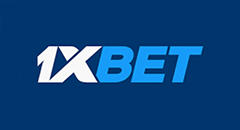| 1xbet Bonus 2025 | ||

|
Promo Code: 1x_1842263 | |
Understanding Sports Betting Basics

Understanding the fundamental aspects of sports betting is crucial to developing a successful betting strategy. Firstly, you need to familiarize yourself with the different types of bets available. These can range from simple bets on the outcome of a game to more complex bets involving specific players or events within a game. Secondly, understanding how odds work is key. Odds represent the likelihood of an event happening and determine how much you stand to win if your bet is successful. Lastly, choosing the right bookmaker is essential. Different bookmakers offer different odds and betting options, so it’s important to find one that suits your betting style and preferences.
Types of Bets and How They Work

There’s a wide variety of bets you can place in sports betting. The most common type is a straight bet, where you simply bet on the team you think will win. Then there’s the point spread bet. Here, the bookmaker gives the underdog a head start to even the playing field. Your team must win by more than the spread for you to win your bet. Prop bets, or proposition bets, involve betting on specific events within a game. This could be anything from the number of goals scored to the number of fouls committed. Lastly, there’s the parlay bet, where you bet on multiple games at once. This type of bet can yield high returns, but it’s also riskier as all your selections must win for you to get a payout.
Deciphering Odds and Their Implications

Odds are a fundamental part of sports betting. They represent the probability of an event happening and determine the potential payout of a bet. Odds can be presented in several formats, including decimal, fractional, and American. Regardless of the format, the principle remains the same: the lower the odds, the higher the probability of the event happening, but the lower the potential payout.
Understanding odds is crucial for value betting, a strategy we’ll discuss later. This involves identifying situations where the odds offered by the bookmaker represent a smaller probability than the actual likelihood of the event happening.
Choosing the Right Bookmaker
Choosing the right bookmaker is a crucial step in your sports betting journey. Different bookmakers offer different odds, betting options, and promotions, so it’s important to find one that suits your needs.
Consider factors such as the range of sports and markets offered, the competitiveness of the odds, and the quality of the customer service. Also, ensure the bookmaker is licensed and regulated to operate in your region.
Remember, the right bookmaker for you is one that caters to your betting preferences and provides a safe and enjoyable betting experience.
Setting a Betting Budget: The Foundation of Smart Betting

One of the first steps in developing a successful betting strategy is setting a budget. This is the amount of money you’re willing to risk on your bets. Having a budget helps you manage your money effectively and prevents you from spending more than you can afford. It’s a crucial part of responsible gambling and can help you avoid financial strain.
Here are some tips for setting a betting budget:
-
Determine what you can afford to lose: Your betting budget should be money that you can afford to lose. Never bet money that you need for essential expenses.
-
Stick to your budget: Once you’ve set a budget, stick to it. Avoid the temptation to chase losses or bet more after a win.
-
Review your budget regularly: Your financial situation can change, so it’s a good idea to review your budget regularly and adjust it if necessary.
Remember, the goal of sports betting should be to have fun and enjoy the game, not to make a quick buck. Always bet responsibly.
Research and Analysis: The Bettor’s Homework

In sports betting, knowledge is power. The more you know about the teams, players, and games you’re betting on, the better your chances of making successful bets. Research and analysis should be a key part of your betting strategy. This involves studying the teams and players, understanding their strengths and weaknesses, and keeping up with the latest news and updates.
Analyzing Teams and Players

When analyzing teams and players, there are several factors to consider. These include the team’s recent performance, the players’ form, and any injuries or suspensions. It’s also important to consider the team’s style of play. Some teams are more defensive, while others are more attacking. Understanding these styles can help you predict how a game might play out. Finally, don’t forget to consider the venue. Home-field advantage can have a significant impact on a team’s performance.
The Significance of Historical Data and Statistics

Historical data and statistics can provide valuable insights for sports betting. They can help you identify trends and patterns that might influence the outcome of a game. For example, a team might have a strong track record of winning home games, or a player might perform particularly well against certain opponents. These trends can inform your betting decisions. However, it’s important to remember that past performance is not always indicative of future results. Always combine historical data with current information for a more accurate prediction.
The Psychology of Betting: Discipline and Decision Making

Sports betting is as much a mental game as it is a game of chance. Your mindset and decision-making skills play a crucial role in your betting success. Discipline is key in sports betting. It’s easy to get carried away and make impulsive bets, especially after a win. However, successful bettors know the importance of sticking to their strategy and not letting emotions dictate their decisions. Another important aspect of betting psychology is managing your expectations. It’s important to understand that losses are part of the game. Don’t let a losing streak discourage you. Instead, use it as a learning opportunity to refine your strategy.
Finally, always remember that sports betting should be fun. Don’t let the pressure of winning overshadow the enjoyment of the game. Keep a clear and focused mind, and you’ll make better betting decisions.
Value Betting: Identifying and Seizing Opportunities

Value betting is a strategy that focuses on finding bets with a higher probability of winning than the odds suggest. It’s about spotting opportunities where the bookmakers may have made a mistake in their odds calculation. To identify value bets, you need to have a deep understanding of the sport and the teams involved. You also need to be able to analyze and interpret statistical data. This is where your research and analysis skills come into play. Remember, value betting is not about winning every bet. It’s about making profitable bets in the long run. So, don’t be discouraged if you lose a few bets. Stick to your strategy, and the profits will come.
In conclusion, value betting is a powerful strategy that can significantly increase your chances of making a profit in sports betting. It requires patience, discipline, and a good understanding of the sport you’re betting on.
Line Shopping: Finding the Best Odds

Line shopping is a simple yet effective strategy that can significantly increase your potential profits. It involves comparing the odds offered by different bookmakers to find the best value. Different bookmakers can have different odds for the same event. This is because each bookmaker has its own method of calculating odds. By comparing these odds, you can find the best value for your bet. However, line shopping requires having accounts with multiple bookmakers. This might seem like a hassle, but the potential profits make it worth the effort. Plus, it gives you the flexibility to take advantage of the best odds available at any given time.
In conclusion, line shopping is a must-do for any serious bettor. It’s a simple way to increase your potential profits without increasing your risk. So, make sure to include it in your sports betting strategies.
Bankroll Management: Maximizing Wins, Minimizing Losses

Bankroll management is a crucial aspect of sports betting. It’s all about how you manage your betting funds. Proper bankroll management can help you maximize your wins and minimize your losses. The first step in bankroll management is setting a budget. This should be an amount that you can afford to lose. Never bet money that you can’t afford to lose. This is a fundamental rule in sports betting. Once you’ve set a budget, stick to it. Don’t be tempted to bet more than you can afford, even if you’re on a winning streak. Remember, sports betting is unpredictable and losses are inevitable.
Here are some tips for effective bankroll management:
-
Bet a small percentage of your bankroll on each bet. This reduces the risk of big losses.
-
Don’t chase losses. If you’re on a losing streak, take a break and reassess your strategy.
-
Keep track of your bets. This can help you identify patterns and adjust your strategy accordingly.
Betting Systems and Models

Betting systems and models can be a useful tool in sports betting. They provide a structured approach to betting, which can help you make more informed decisions. There are many different betting systems out there. Some are simple, while others are more complex. The key is to find a system that works for you. One popular betting system is the Martingale system. This involves doubling your bet after each loss. The idea is that you’ll eventually win and recoup your losses. However, this system can be risky and requires a large bankroll.
Another popular system is the Kelly Criterion. This involves betting a percentage of your bankroll based on the perceived value of the bet. This system can be effective, but it requires a good understanding of value betting.
In conclusion, betting systems can be a useful tool in sports betting. However, they’re not a guarantee of success. It’s important to use them as part of a broader betting strategy.
In-Play Betting: Strategies for Live Action

In-play betting, also known as live betting, is a popular form of sports betting. It involves placing bets on a game that’s already in progress. This adds an extra layer of excitement to the betting experience. One of the main advantages of in-play betting is that it allows you to react to what’s happening in the game. For example, if a key player gets injured, you can adjust your bets accordingly. This can give you an edge over bookmakers who set their odds before the game starts. However, in-play betting also requires quick decision-making. The odds can change rapidly, and you need to be able to react quickly. It’s important to stay focused and avoid making impulsive bets. In conclusion, in-play betting can be a fun and exciting way to bet on sports. However, it requires a good understanding of the game and quick decision-making skills.
Bonuses and Promotions: Leveraging Offers to Your Advantage
Bonuses and promotions are a common feature of online betting platforms. They’re designed to attract new customers and keep existing ones engaged. If used wisely, they can provide a significant boost to your betting bankroll. Welcome bonuses, for example, often match your initial deposit up to a certain amount. This means you could start betting with double the money you deposited. However, these bonuses usually come with wagering requirements. You’ll need to bet a certain amount before you can withdraw any winnings.
Reload bonuses and free bets are other common promotions. They reward you for making additional deposits or placing certain types of bets. Always read the terms and conditions of these offers. They can sometimes come with restrictions that could affect your betting strategy.
In conclusion, bonuses and promotions can be a great way to maximize your betting potential. Just make sure you understand the terms and conditions before you take advantage of these offers.
Record Keeping: Tracking Your Betting Performance
![]()
Keeping detailed records of your bets is a crucial part of any successful betting strategy. It allows you to track your performance over time and identify any patterns or trends in your betting behavior. You can keep track of things like the type of bet, the amount wagered, the odds, and the outcome. This data can help you understand where your strengths and weaknesses lie. It can also help you manage your bankroll more effectively.
Niche Markets: Exploring Less Popular Sports
Diving into less popular sports can be a rewarding strategy for bettors. These niche markets often have less information available, which can create opportunities for those willing to do the research. For instance, sports like rugby, cricket, or even esports might not be as heavily bet on as football or basketball. This means that bookmakers might not be as precise with their odds, creating potential value for knowledgeable bettors. However, betting on niche sports requires a deep understanding of the game. You’ll need to familiarize yourself with the rules, teams, players, and other relevant factors. It’s not a strategy for everyone, but for those willing to put in the work, it can be quite profitable.
Advanced Betting Concepts
As you gain experience in sports betting, you’ll come across more advanced concepts. These can help you refine your strategies and increase your chances of success. However, they often require a deeper understanding of betting principles and a willingness to take calculated risks. One such concept is implied probability. This is a calculation that can help you determine whether a bet offers value. It’s based on the odds offered by the bookmaker and can be a useful tool in your betting arsenal. Another advanced concept is understanding overrounds and vig. These terms refer to the bookmaker’s profit margin built into the odds. By understanding these concepts, you can better assess the quality of the odds you’re getting.
Here are a few more advanced concepts to explore:
-
Asian Handicap betting
-
Portfolio betting and diversifying bets
-
Return on investment (ROI) in sports betting
-
Understanding ‘juice’ or ‘vig’ in sports betting
-
Prop bets and betting syndicates
Hedging Bets and Arbitrage Opportunities

Hedging your bets is a strategy that involves placing bets on different outcomes to guarantee a profit or minimize potential loss. It’s a common practice in sports betting, especially when the odds have shifted after your initial bet.
Arbitrage betting, on the other hand, involves placing bets on all possible outcomes of an event across multiple bookmakers. The aim is to exploit variations in odds to guarantee a profit, regardless of the result. This requires a keen eye for odds and a good understanding of the betting market.
Both strategies require careful planning and a good understanding of odds and probabilities. They can be profitable but also come with their own risks and challenges. It’s important to thoroughly understand these concepts before incorporating them into your betting strategy.
Predictive Analytics and Machine Learning

The use of predictive analytics and machine learning in sports betting is a relatively new phenomenon. These technologies can analyze vast amounts of data to predict outcomes and identify betting opportunities. Predictive analytics uses statistical algorithms and machine learning techniques to identify patterns and trends in past data. This can help bettors make more informed decisions about future events. Machine learning, on the other hand, can be used to create models that learn from past data and improve over time. These models can be used to predict outcomes and identify value bets.
While these technologies can be incredibly powerful, they also require a deep understanding of data analysis and statistics. They’re not for everyone, but for those willing to invest the time and effort, they can provide a significant edge.
The Role of Technology and Community in Betting
Technology has revolutionized the world of sports betting. Today, bettors have access to a wealth of information and tools that can help them make more informed decisions. From betting calculators and software to algorithms and predictive models, technology can provide a significant edge.
One of the key benefits of technology is the ability to analyze vast amounts of data quickly and accurately. This can help bettors identify trends, spot value bets, and make more accurate predictions. It’s also made betting more accessible, with mobile betting apps allowing bettors to place bets anytime, anywhere.
But technology isn’t the only resource bettors have at their disposal. The betting community can also be a valuable source of information and support. From betting forums and online resources to following professional bettors, the community can provide insights, advice, and shared experiences that can enhance your betting strategy.
Conclusion: Responsible Betting and Continuous Learning
Sports betting can be an exciting and rewarding pastime. But it’s important to approach it responsibly. Setting a budget, managing your bankroll, and avoiding emotional decisions are all key to betting responsibly.
Continuous learning is also crucial in sports betting. The landscape is constantly changing, and strategies that worked yesterday may not work tomorrow. Staying updated with the latest news, trends, and strategies can help you stay ahead of the game.
In the end, sports betting is about more than just winning or losing. It’s about the thrill of the game, the joy of learning, and the satisfaction of making informed decisions.
| 1xBet Banking Methods | |||
| Deposit Methods | Withdrawal Methods | Processing Time | Action |
|---|---|---|---|
| Credit/Debit Cards (Visa, MasterCard) | Bank Transfer | 1-3 Business Days | Deposit Now |
| E-Wallets (Skrill, Neteller) | E-Wallets (Skrill, Neteller) | Instant | Deposit Now |
| Cryptocurrency (Bitcoin, Ethereum) | Cryptocurrency | Instant | Deposit Now |
| Prepaid Cards (Paysafecard) | Prepaid Cards | Instant | Deposit Now |
Frequently ask question
- Single Bets: Smarter Way Win More and Lose Less in Sports Betting
- The Maria Staking Plan: Smart Bankroll for Profitable Betting
- What Is Reverse Line Movement in Sports Betting?
- Why Do Betting Lines Move? Secrets the Sportsbooks Don’t Want You to Know
- Chasing Steam in Sports Betting: What It Means and How to Profit
- Futures Betting Explained: Big Wins, Big Risks, and Smart Strategies
- Season Total Wins: How to Bet Smart and Profit
- Removing the Vig: How to Find True Odds and Win Smarter
- Using Home Team Advantage in Sports Betting
- Matched Betting Made Simple: Turn Bonuses into Real Cash
